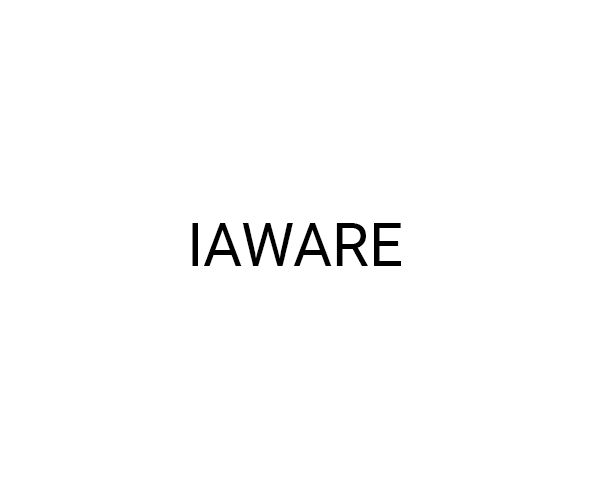IAWARE

IAWARE
N/A
N/A
N/A
Erasmus +
Past Projects
Euro-Forum Agnieszka Gudków, Marek Gudków Spolka Jawna, Lublin, PL
COFAC COOPERATIVA DE FORMACAO E ANIMACAO CULTURAL CRL, Lisbon, PT
PRISM – PROMOZIONE INTERNAZIONALE SICILIA – MONDO, Enna, IT

The project addresses the need to raise adult ICT competences in current online reality. The digital revolution is changing the way Europeans live, work and learn. It offers great opportunities, but is associated with threats. There are more and more ICT trainings, but they usually concern technicalities: how to operate a computer, set up an e-mail account, restore a file from the recycle bin, etc.
There are no trainings and programmes that would teach adults how to navigate in the current reality full of threats: fake news, hate, buying comments, bots, trolling, clickbait, the problem of verifying information sources, fraud. Safety portals are hermetic and use professional vocabulary – this knowledge is beyond the reach of people most exposed to negative phenomena. There are more and more threats, some defying clear definitions: cyber wars, cyber terrorism, disinformation strategies – this threatens democracy. Other threats: FOMO – fear of missing out, overloading with information, infoholism, violations of privacy, astroturfing, spread of conspiracy theories. Europol reports a growing wave of cyberattacks or personal data leaks (according to Gemalto’s breach level index in ’18 there were 214 records/ sec). The EC called on EU countries to include cybersafety in academic and vocational training curricula. Adults are outside these systems. Therefore, there arises a need to create a non-formal education programme, which the Partners wish to implement. This is in line with EU policy: according to the COMMUNICATION FROM THE COMMISSION TO THE EUROPEAN PARLIAMENT, THE COUNCIL, THE EUROPEAN ECONOMIC AND SOCIAL COMMITTEE AND THE COMMITTEE OF THE REGIONS (’18), acquiring ICT skills must be a lifelong process. The EC indicates that we must put emphasis on meeting the challenges of the digital transformation in the field of safety and cyber-hygiene, strengthen the ability of critical thinking and use of the media to enable the assessment and elimination of threats in the form of false information, cyberbullying, radicalization, fraud.
Safety alone is insufficient. Technology enriches science, creates learning opportunities – these are the best investments in the future of the EU (stimulating growth, innovation, new jobs). Opportunities offered by ICT should be shown:
Creativity: how to be not only the recipient but also the content creator
- Participation in culture, social and civic life;
- Access to public information, monitoring activities of authorities;
- Impact on the local community: gathering around ideas, using social media;
- Learning, e-learning.
The results are focused on expanding ICT competences in the field of:
- THREAT PREVENTION (digital exclusion, cybercrime, manipulation);
- USE OF OPPORTUNITIES (levelling social exclusion, access to knowledge, services, jobs, creativity, education, raising social capital, better position on the job market). The project is aimed at adults who have basic technical ICT competences, but have not had the opportunity to develop them, which results in the fact that they have concerns about technologies, do not use their potential, and are subject to manipulation.
OBJECTIVES:
- Creating a modern ICT adult education programme (“iAware”) taking into account the contemporary challenges of the Internet;
- Providing ICT trainers / adult educators with the right tools, knowledge and skills;
- Increasing ICT key competences for adults in the EU and building social cooperation;
- Strengthening the potential of partner organisations.
TARGET GROUPS:
- Adults with low ICT competences who already underwent basic training in the past, i.e. are able to operate the computer, know its functions, use the Internet, but are unable to use this potential and cannot protect themselves against threats;
- ICT trainers / adult educators – they will use the results of intellectual work created as part of the project during the classes;
- Experts – an international interdisciplinary team;
- Partner organisations;
- Other organisations: libraries, training companies, universities of the Third Age, NGOs, offices.
The Leader conducted interviews of ICT trainers teaching adults. They indicated problem areas in such education until the present day and formulated CONCLUSIONS:
- acquiring ICT competences by adults must be practical and functional;
- long courses do not work, the material should be divided into clear modules with clearly defined goals;
- adult courses must be user-friendly: ICT-related vocabulary is difficult and causes confusion;
- sometimes one can see the devaluation of ICT, the belief that it is not needed or that working in front of a computer is not a real job. This results from the fear and lack of knowledge;
- credulity, naivety of participants, exposure to threats.
Partners share similar realities and problems. Achieving project assumptions is not possible without international cooperation – it will allow for better analysis of the problem, exchange of good practices and experiences. It can be said that the Internet has no borders, while threats and opportunities are spreading freely. Therefore, it would be impossible to develop the topic on the national level comprehensively and in line with the EC assumptions. INTERNATIONAL COOPERATION IS ESSENTIAL.
